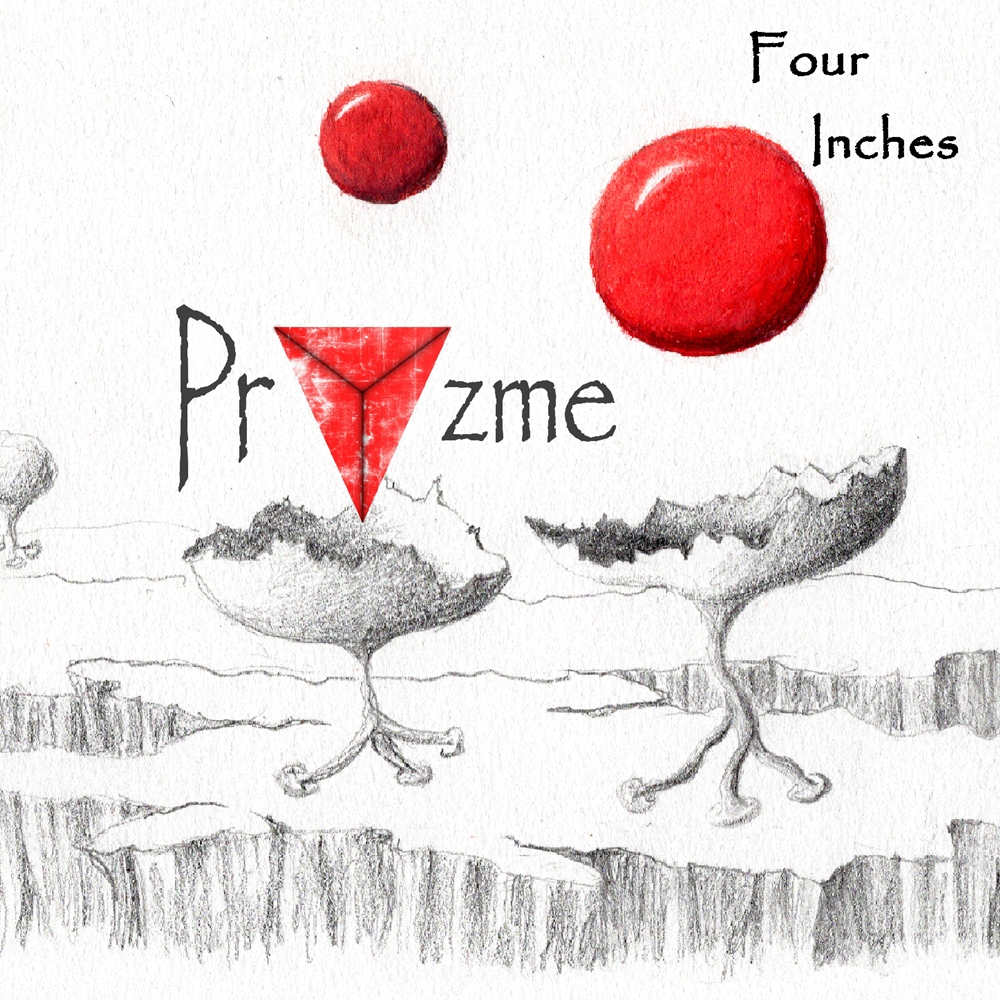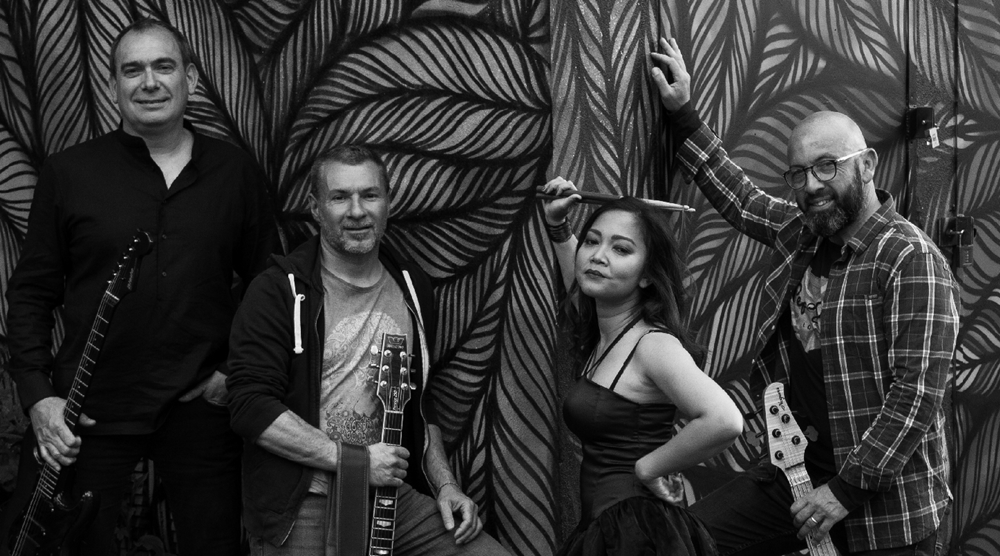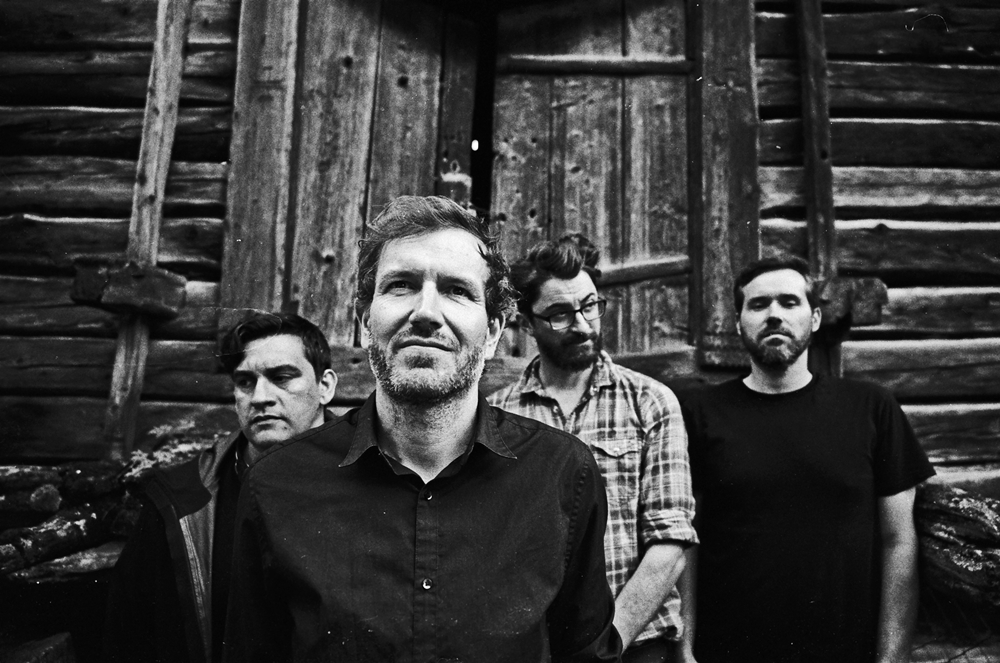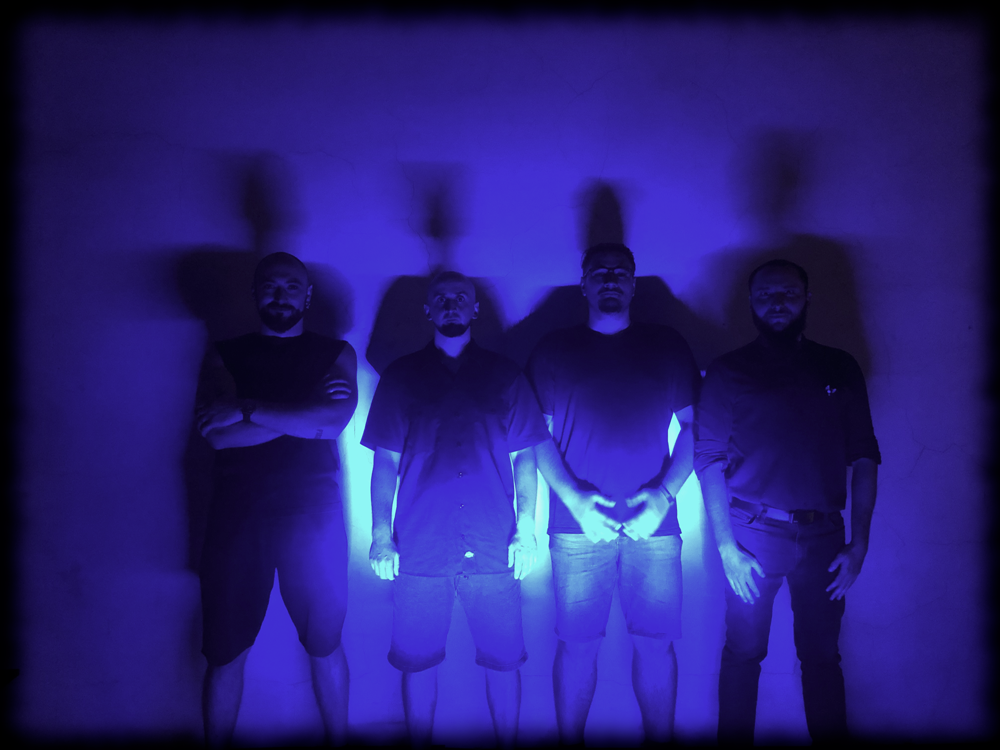Pryzme is a progressive French rock band born from the idea of Dominic Blanchard and David Chollet in 2014. Gabrielle Duplenne and Maxence Marmiyesses completed the lineup in 2019. Because we were curious to hear more about them and their recent release, we connected with Pryzme to learn more.
Hi! When creating a music project, the name is usually more important than anything else. Was the name “Pryzme” already in your mind, or did you have to sift through several possibilities before settling on the best one? Does Pryzme have a hidden meaning?
Finding a name was not easy. We tried a lot of possibilities. We wanted a proper noun that was short and identifiable in several languages, and above all, that was in keeping with our musical universe. According to the definition, a prism deflects light and breaks it down. Our prism is upside down and brings together all the musical influences that make up our music. It’s also a nod to Pink Floyd and the cover of The Dark Side of the Moon, an album we love.
Given the state of mainstream culture that permeates our media consumption, how would you present your music to a foreigner?
We are very far from the mainstream and what young people listen to nowadays, especially in France. We could say: be curious; you’ll love it! Between us, we say that we make aero progressive music.
How do you think your sound has evolved over the years? Did you always have in mind to sound the way you sound today?
The sounds are kind of born with the songs as we write them. In other words, the choice of sounds is often part of the composition. We don’t touch up the overall sound very much once the composition is mapped out. That’s more true for the synth parts; for the guitars, we always tweak a bit as we go along.
What are its main themes, and how could the album “Four Inches” be best served?
“Four Inches” is very far from a concept album. We wrote the songs between 2013 and 2021. There is no common thread, and each track deals with a different theme from the others with its own universe.
What was it that inspired you to put together the latest album, “Four Inches”?
The creative process was not a smooth one. Some songs were born from a guitar riff or a repetitive motif, and others from a rhythmic phrase or a single melody that was developed and fleshed out. Sometimes the ideas come together, and sometimes, they come out of thin air. It is rare to compose a piece in a short time. The work on the harmonies and arrangements is often long. For all the pieces, we record the ideas on a demo as we go along; we assemble, disassemble, test, and refine until the final result. If necessary, we also help each other to make progress on the more complex pieces. The work on the chorus followed the same process. All the songs have evolved a lot on stage before entering the studio.
What are some of the lyrical motifs listeners we’ll find on “Four Inches”?
There’s not really a common thread. Each song is a little story. It’s about moments in life, an artist we love, the influence of screens, or the blank page syndrome.
How should we relate to your music? What are your influences, and who keeps on inspiring you frequently?
Our music is a progressive rock that is accessible to everyone. We are happy to reach not only the lovers of the genre but also the uninformed public who do not necessarily know this style. Despite the length of the tracks, we often get positive feedback. The track “Four inches” is over 13 minutes long, and when we play live, we are often surprised by the feedback we get from the audience, who tell us that they don’t see the time passing. We manage to take them with us, and that’s cool!
Our passion for rock and progressive music in general, but also for jazz and jazz fusion comes from bands that have been able to compose great musical frescoes and offer a lot of richness in the arrangements. We think of bands like Pink Floyd, Yes, Genesis, of course, but also others like Pat Metheny Group or Porcupine Tree. We are very sensitive to melodies, harmonic flights of fancy and elaborate arrangements.
Take me through your sound design process. Does the conception come first, or do the songs evolve naturally?
Often the sound design develops for us at the same time as the writing. We have an idea of the end result early on in the composition process. At the demo stage, we already have a good idea of what the guitars and synths will sound like. Then we let things evolve according to the song and its atmosphere.
Do you have a clear idea of what it will be before you start making it?
Not always, and that’s why composing is often magical. You think you’re going to go in one direction, and then you end up somewhere else. It’s always full of surprises.
When listeners make their way through your songs, what do you want them to feel?
To be moved and surprised, moved by beautiful harmonies and surprised by the way the arrangements turn out.
What kind of situation do you see your music accompanying?
There are quite a few different moods in our compositions. Even within the same song. A slow introduction can lead to a strong chorus and then back to a soaring verse. In other words, in any situation is good to listen to us (lol)!
What does playing and living in the millennium generation of progressive rock artists mean? What are you borrowing from those who came before you, and what do you do to push the genre forward?
We’re surfing a style of music that was invented a little while ago now, and we, Pryzme, are just a tiny drop in the ocean of work that exists. We hope that our music still contains some of the good ingredients needed to sound like prog rock and that it also brings something new to the table. What we borrow from our elders is the freedom in writing and composing that allows us to ignore the standards imposed by the music industry, such as the length of a song.
What other creative outputs do you engage in that we may not suspect?
Our artistic skills stop at music, although we love all forms of art. However, even if it is still too early to talk about a second album, we already have everything we need to start thinking about it. We are already maturing several new songs on stage. The compositions are in the same vein, with beautiful harmonic flights of fancy and nice surprises.
An album is considered successful when:
It is appreciated by the public as well as by music professionals. It is coherent and surprises the listener with each track.

Follow Pryzme on:
Facebook | Instagram | Bandcamp | Spotify | Website



